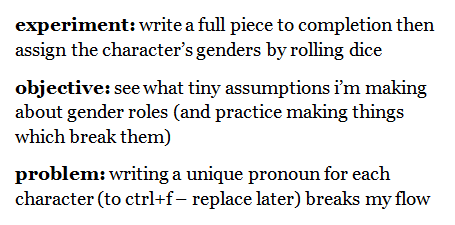When you genericize slurs like
gay,
retarded, or
lame into insults, even if you're not referring to people when you use them ("That movie is so gay," etc.), you're training people to react to those words with derision. And you can point out all you'd like that intellectually, you know the difference between a gay person and a thing you call "gay", but slurs and insults don't engage people intellectually. They engage people emotionally. And emotions do flavor the way we interact with things.
If you can undercut someone's sympathy for a person, you can legitimize actions and attitudes taken against them. This is why, on a grand scale, war propaganda has historically tried so hard to dehumanize "the enemy." This is also why things like the
gay panic defense works – everyone knows that gay sex is gross, everyone knows that having to endure homosexual attention is terrifying, so isn't it understandable if you flip out under that threat and someone gets hurt, even killed? If a man was approached by a woman romantically and flipped out and killed her, that would be totally unacceptable, but that's not icky in the same way a man approaching another man is. Everyone
knows this.
Note that "gross" and "terrifying" and "icky" aren't intellectual arguments, either.
Emotions get people killed.
Attitudes get people killed.
And when they're not getting people killed, they're making their lives hard to navigate in. They're creating worlds in which
what someone is can be constantly under attack, because if you identify with one of those terms, or if a family member does, if a loved one does, you're hearing that word spoken with derision as part of casual interchange with the culture around you.
And yeah, on the surface, calling something "gay" or "retarded" or "lame" doesn't seem like much, but it normalizes those negative attitudes. It legitimizes that derision. It's not murder, but it supports the attitudes thereof. It's a part of a culture of judgement and violence.
No one dot on a polka-dot dress is a polka-dot pattern, but
every single one of them makes up the pattern it's in.
This is one of many reasons why I'm working hard to eliminate words like
lame or
crazy or
gypped from my colloquial vocabulary, and why I'm grateful to the people who have called me on those words in the past. Because I'm a writer; I rely on the power of words to create pictures of the world, to influence thoughts and emotions, and I refuse to lend those words to the cause of hurting people who have done nothing wrong.
